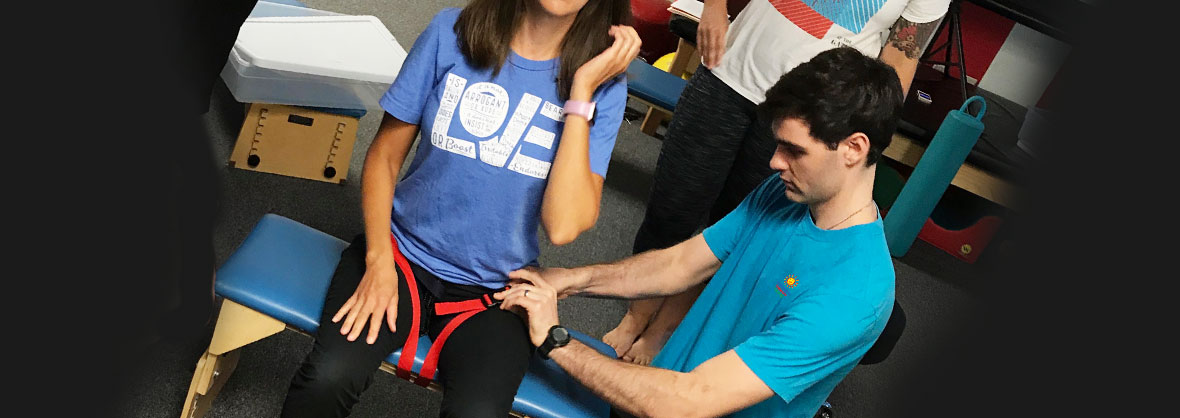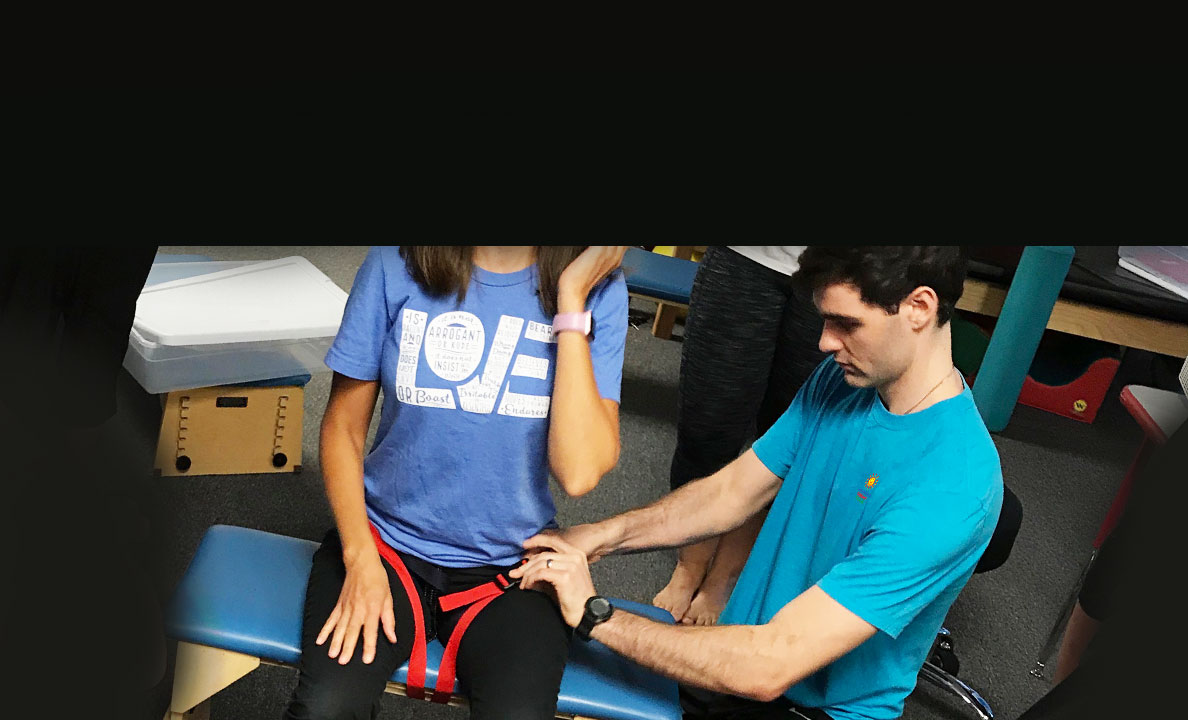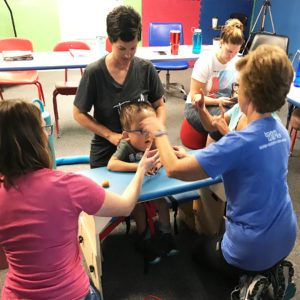

Therapist Inservice Training Targets More Accurate Measure of Trunk Control.
Development of trunk control is an important part of every child’s development. Without proper trunk control, it is difficult to manage many of the functional activities of everyday life like feeding or bathing ourselves. If our trunk is stable, then we are able to use our arms and hands when seated in a chair. Also, trunk control is important for learning to walk, run, and jump.
Given the importance of trunk control, this summer, Children’s Therapy TEAM therapists added a new assessment to their already robust repertoire of assessment tools called Segmental Assessment of Trunk Control or SATCo for short. According to Merilee Booker, Board-Certified Clinical Specialist in Pediatric PT and Children’s Therapy TEAM Director of Research and Knowledge Translation, “SATCo is a helpful measure to more precisely determine the segmental level of trunk control a child has in static, active, and reactive situations.” This information is critical knowledge for therapists. It helps therapists establish appropriate treatment strategies to promote improvement in trunk control and functional skills.
 Before the training was offered in-house to all Children’s Therapy TEAM therapists, a small group of TEAM therapists attended a training in 2017. Kym Hannah, PT/CEO of Children’s Therapy TEAM, was so impressed with the benefits of the assessment tool, that she enthusiastically supported all therapists at Children’s Therapy TEAM having an opportunity to learn the assessment.
Before the training was offered in-house to all Children’s Therapy TEAM therapists, a small group of TEAM therapists attended a training in 2017. Kym Hannah, PT/CEO of Children’s Therapy TEAM, was so impressed with the benefits of the assessment tool, that she enthusiastically supported all therapists at Children’s Therapy TEAM having an opportunity to learn the assessment.
Children’s Therapy TEAM’s SATCo training team felt that it was important to provide a multidisciplinary approach. The training team included Merilee Booker, PT, Janna Simpson, PT, Jordan Pfeifer, OT, and Lynsey Lobdell, SLP. During the training, each therapist was able to discuss how the information relates to treatment techniques and positioning in their particular discipline.
A team approach is essential in delivering SATCo as it requires 2-3 therapists to appropriately assess a child. Children’s Therapy TEAM’s training offered small group practice opportunities and reviews of relevant case studies.
When it comes to assessments, it is important for a therapist to: 1) choose the right assessment, and, 2) have the professional skills to be able to both deliver and score the assessment. At the heart of Children’s Therapy TEAM’s approach is an unwavering commitment to using current innovation and research to inform and instruct our work with children. We strive to add to this knowledge set with compassion, kindness, and warmth to achieve great pediatric therapy care.
